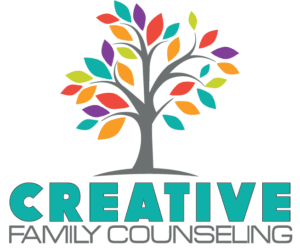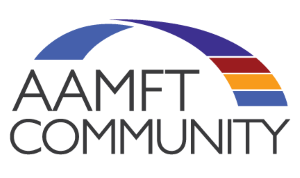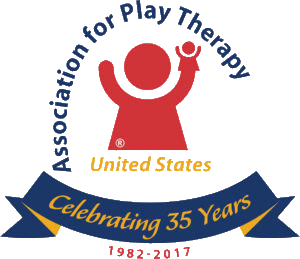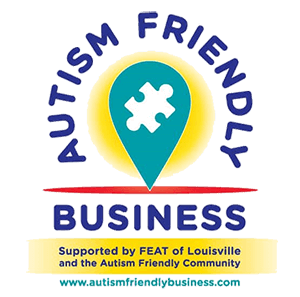Therapy for Kids
Everyone deserves a loving and peaceful home.
We understand what it’s like to be worried about your child’s wellbeing.
We can help.
Does My Child Need Therapy?
Parents seek out our services for several reasons.
- Sometimes parents know that a big family change or stressor is in the child’s future and they want to proactively provide their child with a resource (a trusted therapist) which will help them through that transition. For these parents, helping and encouraging their children to manage the emotions related to that transition/change in healthy ways is their priority.
- Other times, parents are concerned or worried about an event that has already happened. A traumatic event or social stressor has impacted their child and they want to provide their child with a healthy outlet to cope.
- Most often, parents have observed a change in their child’s behavior or the way their child is interacting with others and are seeking to understand how to help them and resolve that problem.
Children show they’re having a hard time through their behaviors. Sometimes these behaviors are “internalized” and may include
- withdrawing
- isolating
- shutting down
- not engaging in activities they once enjoyed
- “spacing out”
- stomach-aches or headaches
- becoming apathetic.
Other times changes in behaviors are “externalized” and may include
- irritability
- tantrums
- panic attacks
- lack of cooperation
- defiance
- crying spells
- other behavioral challenges.
If your child has experienced a change in their behaviors, it’s a good sign they will benefit from therapy, even if it is short term.
There is hope.
Our Approach:
Creative Family Counseling has invested in growing a team of clinicians who specialize in working with children, teens, and families. It’s our niche. Not all therapists are equipped to treat the unique dynamics of working with children, teens, and parents, but the Clinicians at Creative Family Counseling have received expert training in therapy models that are proven to be effective in helping families meet their goals in counseling.
Children communicate through play. It is through play therapy that children learn to solve problems, recover from traumatic events, regulate emotions, develop coping skills, resolve conflict, and overcome challenges and transitions. For this reason, any therapy for children at Creative Family Counseling involves a wide array of expressive therapies. Expressive therapies include many creative therapeutic interventions such as using toys, activities, games, art therapy, drama, dance, and music just to name a few. Our practice Therapy Dogs provide animal-assisted therapy with clients. By experiencing these creative interventions with a skilled and caring therapist, children are able to express themselves in their own developmentally appropriate ways.
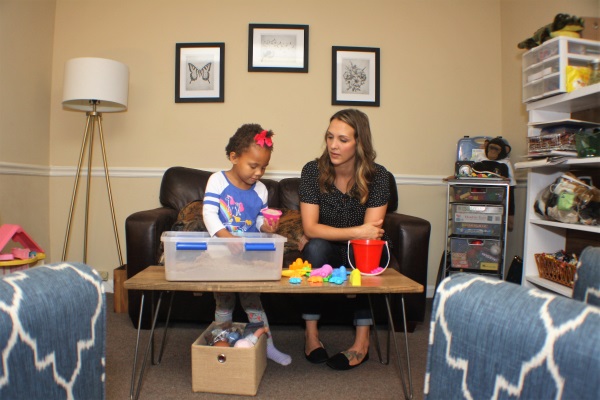 Common issues addressed through expressive therapies are:
Common issues addressed through expressive therapies are:
- behavioral problems
- depression
- anxiety and panic
- grief
- ADHD
- mood instability
- Autism Spectrum Disorders
- issues related to a history of trauma, abuse, neglect or abandonment
Therapists at Creative Family Counseling are also trained in other child-appropriate trauma treatment modalities, such as Trauma-Focused Cognitive Behavioral Therapy (TF-CBT) and Eye Movement Desensitization and Reprocessing (EMDR). These treatment tools are utilized in a way that is developmentally appropriate for children with special attention to each client’s individual needs.
We want your home to be a happier one.
Creative Family Counseling takes a systemic and integrative approach to work with children. Oftentimes, a child’s behaviors can serve as a warning signal that the family system isn’t functioning as best as it could. By offering families a wide array of services to meet their unique needs, such as individual play therapy, family therapy, workshops, and groups, clients are able to create a personalized treatment plan to meet their needs. Here we help you develop healthier ways of interacting and connecting with one another, which meets a child’s underlying behavioral needs and allows us to be successful in reaching therapy goals.
Outcomes of Therapy with Kids:
- Emotion recognition
- Emotional regulation skills
- Improved problem solving skills
- Increase self esteem and more confidence
- Interruption of negative interaction cycles
- Healthy boundaries
- More peaceful interactions
- Healthier communication skills
- Healing
- Reduction in stress
- Recovery from trauma and stress
- Adjustment to life changes
- Social skills
- Higher executive functioning
We Offer Lots of Options for Scheduling.
Our clinicians offer flexible availability with counseling for kids offered at our Prospect Campus and our Louisville Campus. We also know that your time is valuable and that in-person appointments are not for everyone. No fear – our counselors can meet with parents for parenting support and Intakes Online via Telehealth! Lastly, if your child attends school, check out our School Facilitated Services page to see if we have a Therapist at your child’s school who can help limit the overhwelm of getting your child to and from therapy!
Everyone deserves a loving and peaceful home.
We agree to provide a safe space that allows clients to reach their goals in a collaborative manner.
I’m ready for a happier home. How do we get started?
1. Contact our Practice Administrator to be matched with a Therapist who fits your needs.
2. Schedule an intake appointment to discuss your concerns and goals.
3. Allow your Therapist to create an individualized treatment plan for you and your child.
4. Work together to meet your goals.
5. Enjoy a more fulfilling relationship and a happier home.
Still have Questions?
Visit our Frequently Asked Questions page to have additional questions answered!
